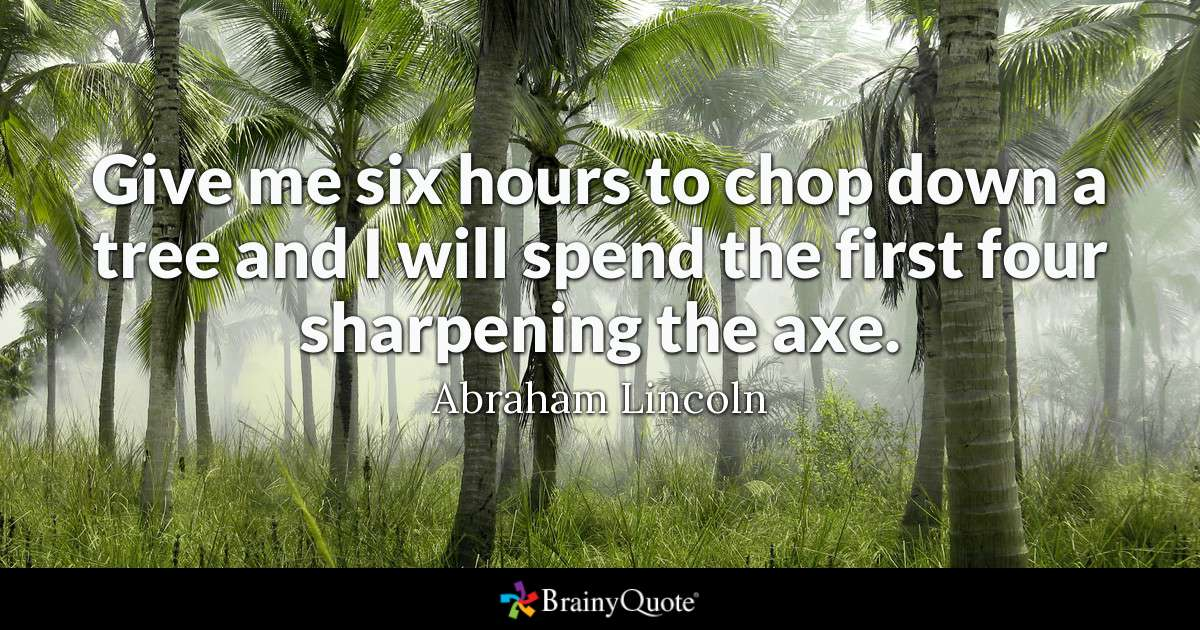time to move on

You know success is out there but you’re not finding it no matter how hard you dig. You see others strike it big and assume they’re luckier or got a bigger shovel.
You could have the perfect tools and focus on your goals, but it won’t matter if you’re digging in the wrong place.
People may spend their whole lives climbing the ladder of success only to find, once they reach the top, that the ladder is leaning against the wrong wall.
Thomas Merton
The Double-Edged Sword of Focus
You work hard, eliminate distractions, and focus on one area. This can be good and bad at the same time.
Take gold prospecting. Digging a one hundred foot mine shaft will keep you busy, whether the gold lies there or not. If there isn’t any gold, all your work will be in vain.
The same can be said for your writing.
How do you know where to invest your effort?
You need to go wide and then deep.
Trying new areas is the only way to know if a better prospect is out there for you.
The gold miners need to survey the whole landscape first. They go wide. The surveyors dig exploratory mines in promising spots. They only go deep when there’s a good chance of reward for their efforts, because they have to process a lot of ore to find nuggets of gold.
Then they study the landscape to learn the signs that tell them there’s gold further down, which makes it easier to spot next time.
For example, I wrote an article about being let down by a former friend. It was more popular than anything I’d written up to that point.
Friends shared it and reached out to me on Twitter. It wasn’t viral, but it was a little gold strike. Once I got over being amazed, I studied it to see how it differed from previous pieces and came up with the following points.
- Personal tale
- Readers like emotional stories
- Universal theme of betrayal
- Conversational style — written as a letter
- Shared to social media on a ‘quiet’ day
- Friend shared it on her Facebook feed
- Cross posted in several places — blog, Medium, Twitter
- Performed best on Medium
So now I have some pointers to what might do well, and where. I can choose to add the personal, and decide on the best writing style to use next time.
The other lesson is that it’s impossible to predict what will do well and where. Spread your net wide.
Want more? You’ll have to do more
Quality comes from quantity. You can’t hit the target if you don’t shoot, and the more shots you take the more hits are likely. Yes, a debut author might be nominated for the Man Booker Prize or get their first novel filmed by Steven Spielberg.
But these are unicorns, rarer than a lottery win and even less predictable. Working consistently is the best route to success.
There are two ways to approach diversifying your writing. You can explore your niche more widely, or move outside it altogether. Let’s look at that in more detail.
Challenge grows your writing muscles
Life begins at the edge of your comfort zone.
Neale Donald Walsch
You want to do more. You want to achieve your potential, though you’re unsure what that might look like.
That means leaving the comfort zone and doing something new. Then assess your results and adjust your course. Let’s see what that looks like for a writer.
Try a new fishing ground
Writing divides into three very broad categories.
- Fiction
- Poetry
- Non-fiction
Writing fiction teaches imagination, how to move a story along, and how to tell the truth by hiding it inside a story.
Writing poetry teaches focus on emotions, how to condense expression, how to convey concepts in word pictures that show the world in a new light.
Writing non-fiction teaches structure, clarity of expression, how to make an argument, how to persuade and inform.
The best pieces include elements from more than one discipline and appeals to more of our senses and emotions. We write to change how people feel, so having more tools leads to better engagement with our audience.
Crossing the boundaries could look like this.
- Poetry plus non-fiction elements:
Structured poetry forms like sonnet, villanelle, tanka
Polemic — a poem with a strongly stated point of view - Fiction plus non-fiction elements:
Tightly plotted fiction
Historical fiction with strong research base - Fiction plus poetry elements:
Lyrical writing style
Highly descriptive but concise style - Non-fiction plus poetry elements
Descriptive travel writing
Immersive memoir
Learn new ways to tell your story. Blur the boundaries. Take what you learn back to your chosen area and play with it.
Try a different corner of your own field
If you always write free poetry, use a recognised form like a sonnet. If you write technical pieces, write a think piece on your industry or an interview with a leader in the field. Horror and romance writers, switch genres.
Your next piece will benefit from a new approach.
Wave a flag and get noticed
This is a great time to be a writer. Gatekeepers might still guard the doors to traditional publishing, but it’s never been easier to choose yourself and get your words out there. That inevitably leads to a crowded marketplace, but there are ways to stand out.
Enter a competition
In a world of almost limitless choices, recommendations count for a lot. That’s why star ratings are so powerful. Winning a competition or even getting shortlisted in one can lead to new opportunities. A win says you can be trusted to tell a story.
In 2017 I won first place after entering the HE Bates Short Story Competition. The boost this gave my writing career and confidence continues even now.
The win raised my profile among friends and family, some of whom took my writing seriously for the first time. The story was published in a local lifestyle magazine.
I now write a monthly story for them and continue to build my portfolio.
It’s a virtuous circle in which success opens doors and changes attitudes, not least my own. And I bought some very fancy noise cancelling headphones with the prize money.
Competitions cover every kind of writing and writer and are held year-round. Writing magazines are good sources of information, and you can google by type. Many are free to enter so there’s no reason to pass on a chance for recognition.
Start a blog
Starting a blog is easier than ever, and can be low or even no cost. While it’s not easy to drive traffic to a blog, you can experiment with your style and start gathering fans.
If you’re querying agents for traditional publishing, they expect to see samples of your work if they Google you.
Your blog or website is the place to assemble your portfolio. Aim for consistent, high quality work rather than lots of rushed pieces.
Medium is one of the best places to expand your writing career. You can write for yourself, or for publications boasting thousands of followers.
Do both and spread your net wider. Look around and see where you could fit in. Try Smedian, a site that gathers useful information on publications plus links to joining them as a writer.
Submit to magazines
Study the websites for guidelines on what the editor is looking for and how to submit. Editors need good fiction and non-fiction every month.
This article looks at non-fiction submission.
Submitting to literary magazines is covered here. This is a good way to build writing credits and a reputation.
With a Little Help From My Friends
If you want to go fast, go alone. If you want to go far, go together.
African proverb
Writing is a solitary occupation but sometimes it’s helpful to share the journey. Other writers understand the challenges and can be supportive, sharing ideas and information. Writing magazines host online forums where feedback and advice is given.
Many online groups exist, often run through Facebook. Real life groups get you out of the chair and offer social interaction.
Be prepared to stick with a group for a while to see if it’s a good fit with you and your aspirations.
Groups reflect life and can be breeding grounds for negative interactions, so if you’re experiencing overbearing or overcritical personalities leave gracefully and look for another.
Try It Now
Prompt: a person finds a key in the street.
Now write about it in 500 words or less.
Non-fiction writers, write a poem of any form.
Fiction writers, write a factual piece.
Poets, write a short story.
Take the Next Step
You want to improve and get to the next level?
Challenge yourself to do something new and stretch your muscles. Then employ that new strength in a new area. You never know, your real calling might lie in a totally different place from where you are now.
It’s time to get moving.















